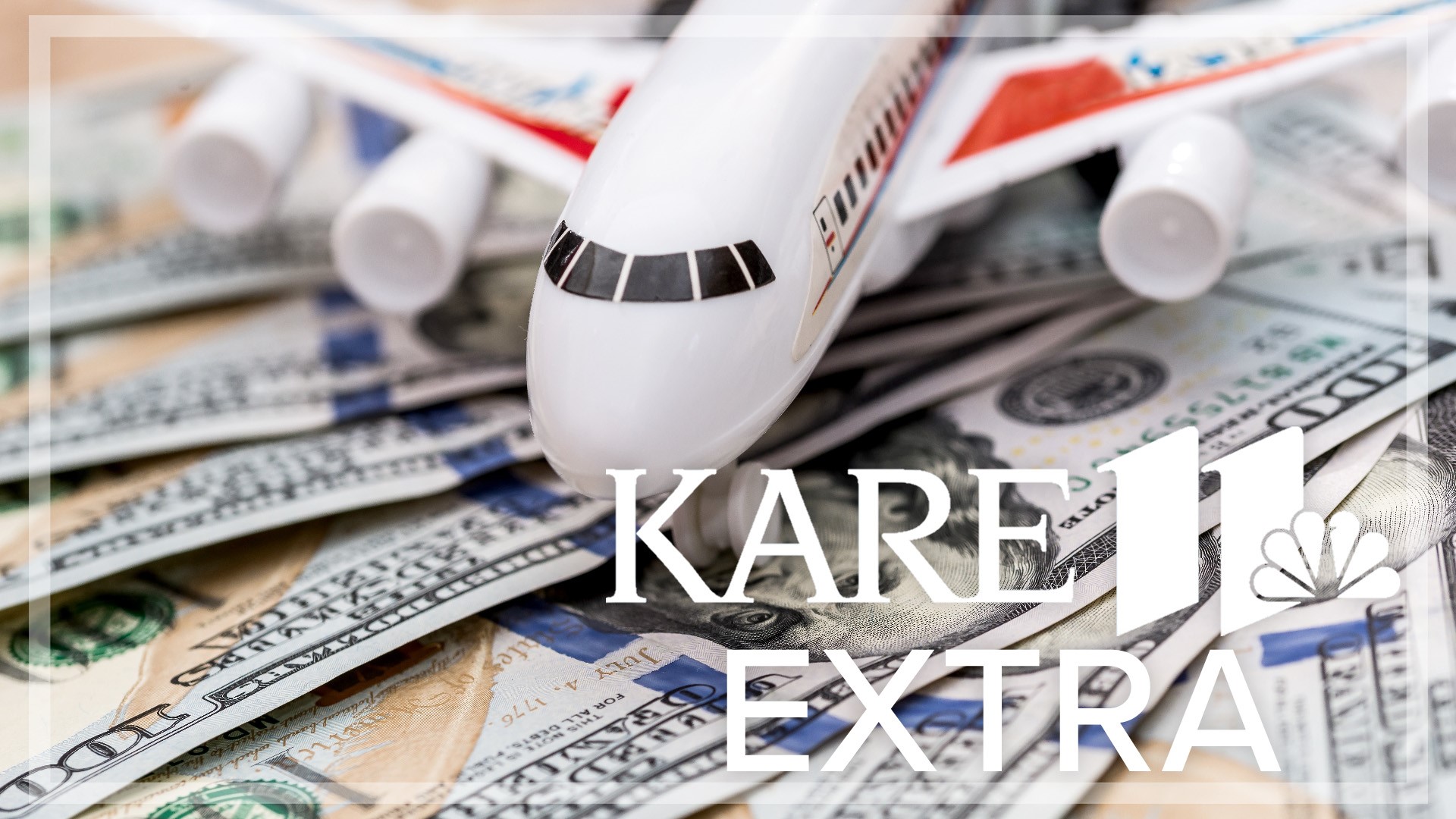GOLDEN VALLEY, Minn. — If you've planned — or tried to plan — a trip this summer, you know, it's expensive. But there are still ways to save money — or at least protect yourself when it comes to travel.
"In general, these days you're going to save the most by prepaying for things," said Kevin Brasler with Consumers' Checkbook.
Brasler wrote about 60 strategies for finding the best travel deals and avoiding trouble.
“The one lesson I've learned over the years is that when you're booking travel, the more flexibility you have, the better,” says Brasler. “Sometimes just shifting your days around by a few days can have a dramatic impact on your costs.”
And look, we know you're trying to take a vacation from your job, but if you want a good deal, you do kind of have to work at it.
“You can set up flight alerts with Kayak and Google Flights, and these sites to let you know when prices have dropped below a certain threshold. That's really helpful. It means you don't have to go on every single day to check prices, because prices do change that quickly. The deals come and go, within an hour they can be gone, so the more alerts you can set up, the better,” says Brasler.
When it comes to hotels, all those sites you search to find good deals are all owned by two big giant companies, Booking.com and Expedia.
“They have struck deals with hotels where they are not competing on price across all these booking platforms. The only way you can really save money is to book a mystery-deals,” he says.
“You don't know the name of the hotel until you've paid and booked, and there's no backing out, and it sounds like it's really risky, but it's not. They give you a lot of filters to control to make sure that you're staying in a good spot, that it gets good ratings from customers, that it's a 3- or 4-star property, and it's in the general neighborhood where you want to be,” he explains.
You can save money on rental cars by paying in advance. And if you're not saving money, it's always best to book directly with the operator.
That's true for cars, hotels and airlines. That way if something goes wrong, or you need a refund, there's no middleman. And if something does go wrong, you need to protect your investment.
“When you buy things using a credit card, you get really strong consumer protections against fraud, against things going wrong. If you're dissatisfied in any way, you can dispute the charges with your credit card company, and normally the credit card companies side with the consumers on those types of disputes,” Brasler says.
He also recommends you pay attention to hidden fees, especially when it comes to Airbnb and Vrbo. They often tack on cleaning fees, deposits, or fees for extra guests. If you're traveling abroad, make sure your credit card doesn't charge foreign transaction fees. And for the love of Pete, check the date on your passport.
"Let's say you want to stay longer than you planned on staying, while if their tourist visa is good for six months in that country, they want to make sure your passport is good for six months not just the two weeks you're going to be there."
And finally, steer clear of insurance.
“Most people don't need travel insurance. You especially don't need the stuff that is sold by airlines and travel book sites. That's trip interruption and cancellation insurance and it’s really lousy stuff, like there's too many exclusions there, it's hard to collect,” he says.
You can read the full article here.
Watch more local news:
Watch the latest local news from the Twin Cities in our YouTube playlist:

